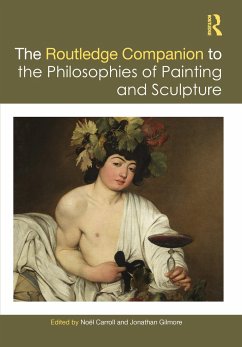
Honouring and Admiring the Immoral
An Ethical Guide
Versandkostenfrei!
Versandfertig in 6-10 Tagen
22,99 €
inkl. MwSt.
Weitere Ausgaben:

PAYBACK Punkte
11 °P sammeln!
Is it appropriate to honour and admire people who have created great works of art, made important intellectual contributions, performed great sporting feats, or shaped the history of a nation if those people have also acted immorally? This book provides a philosophical investigation of this important and timely question.The authors draw on the latest research from ethics, value theory, philosophy of emotion, social philosophy, and social psychology to develop and substantiate arguments that have been made in the public debates about this issue. They offer a detailed analysis of the nature and ...
Is it appropriate to honour and admire people who have created great works of art, made important intellectual contributions, performed great sporting feats, or shaped the history of a nation if those people have also acted immorally? This book provides a philosophical investigation of this important and timely question.
The authors draw on the latest research from ethics, value theory, philosophy of emotion, social philosophy, and social psychology to develop and substantiate arguments that have been made in the public debates about this issue. They offer a detailed analysis of the nature and ethics of honour and admiration, and present reasons both in favour and against honouring and admiring the immoral. They also take on the important matter of whether we can separate the achievements of public figures from their immoral behaviour. Ultimately, the authors reject a "onesize-fits-all" approach and argue that we must weigh up the reasons for and against honouring and admiring in each particular case.
Honouring and Admiring the Immoral is written in an accessible style that shows how philosophy can engage with public debates about important ethical issues. It will be of interest to scholars and students working in moral philosophy, philosophy of emotion, and social philosophy.
The authors draw on the latest research from ethics, value theory, philosophy of emotion, social philosophy, and social psychology to develop and substantiate arguments that have been made in the public debates about this issue. They offer a detailed analysis of the nature and ethics of honour and admiration, and present reasons both in favour and against honouring and admiring the immoral. They also take on the important matter of whether we can separate the achievements of public figures from their immoral behaviour. Ultimately, the authors reject a "onesize-fits-all" approach and argue that we must weigh up the reasons for and against honouring and admiring in each particular case.
Honouring and Admiring the Immoral is written in an accessible style that shows how philosophy can engage with public debates about important ethical issues. It will be of interest to scholars and students working in moral philosophy, philosophy of emotion, and social philosophy.














